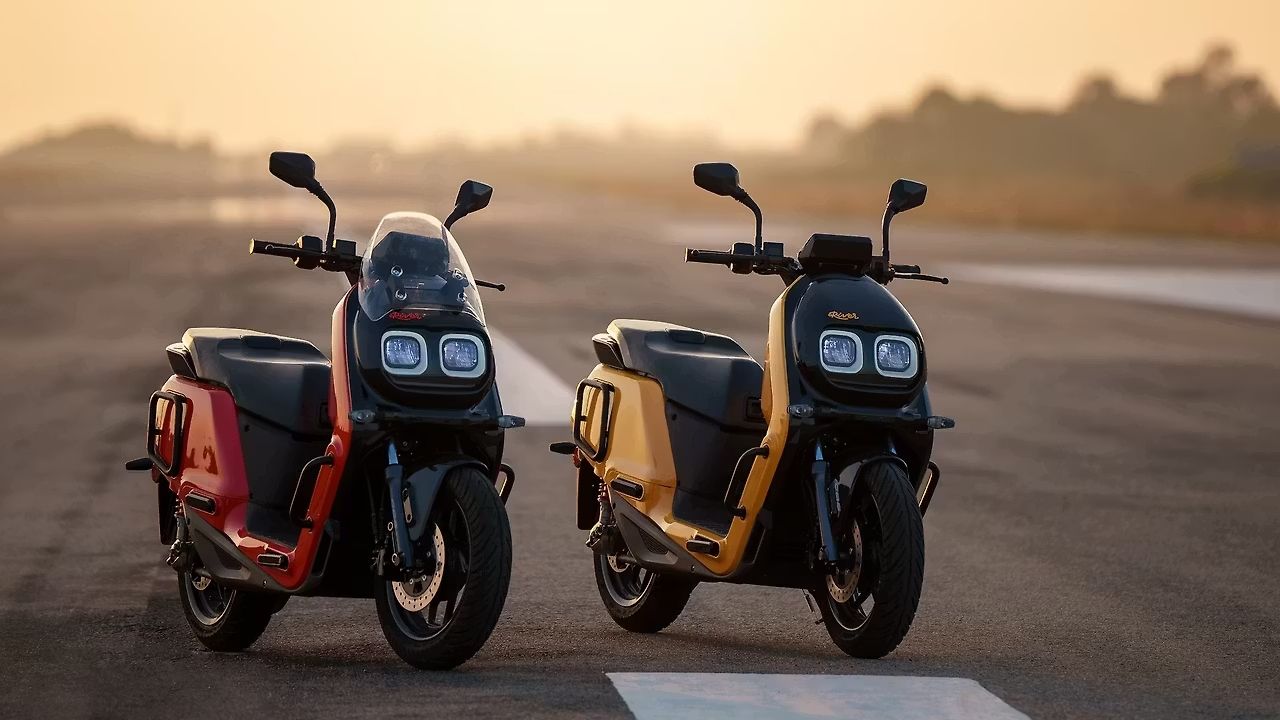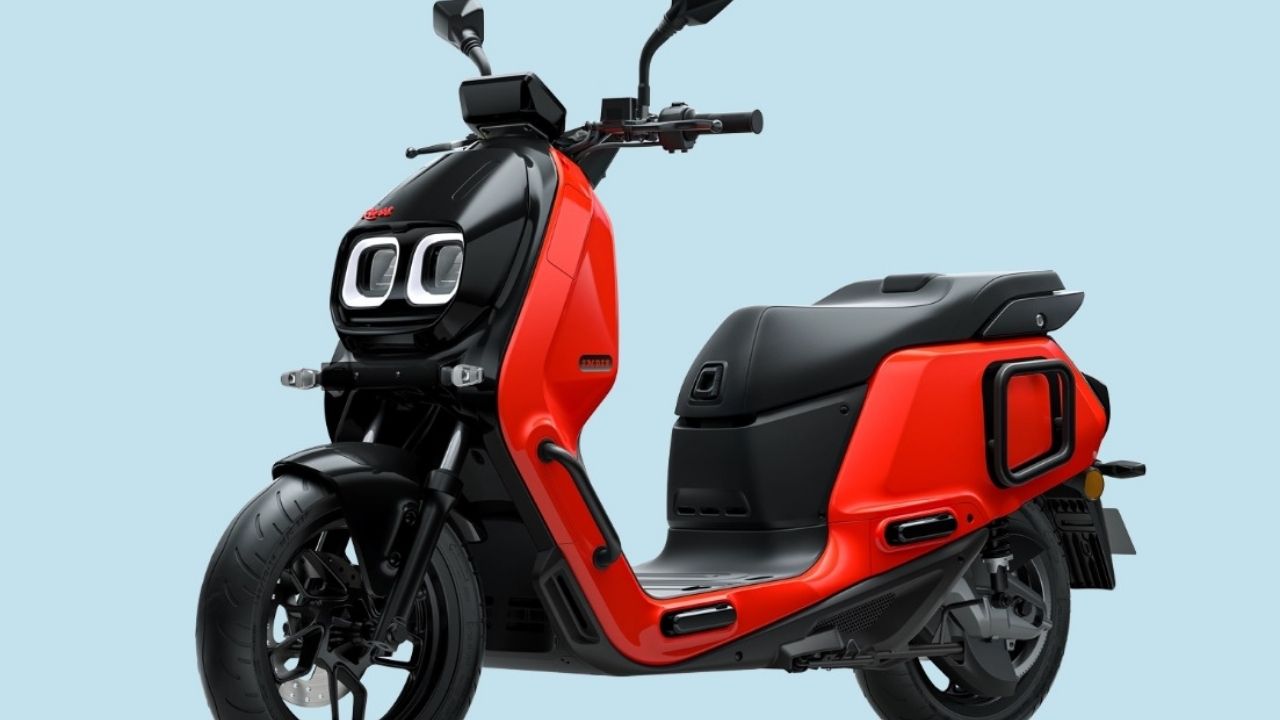Yamaha is stepping boldly into India’s electric two-wheeler space with its upcoming electric scooter, internally codenamed RY01. The scooter is being developed in collaboration with the Bengaluru-based electric vehicle startup, River. This joint venture represents Yamaha’s commitment to entering the growing Indian EV market with a product that not only carries the legacy of performance but also adapts to modern electric mobility demands.
The electric two-wheeler segment in India has seen an exponential rise in interest and demand, thanks to government incentives, rising fuel prices, and increased environmental awareness. Yamaha’s decision to partner with a local startup reflects its strategy to localise development while maintaining its global quality standards.
By utilising River’s already successful Indie platform, Yamaha intends to deliver a product that combines proven technology with its own distinctive design and brand identity. The RY01 is expected to cater to urban commuters who seek both functionality and a sporty ride experience.

Yamaha and River: A Strategic EV Alliance
Yamaha made a significant move by investing around $40 million in River during the Series B funding round in 2024. This capital investment is not merely financial; it is also strategic in terms of product development, localisation, and scaling up manufacturing.
River brings to the table its expertise in electric vehicle research and development, especially around powertrain integration and battery management. On the other hand, Yamaha leads the efforts in styling, branding, and product positioning. This blend allows both companies to focus on their core strengths and jointly deliver a high-performance electric scooter tailored to Indian roads.
Expected Features and Specifications
The Yamaha RY01 is expected to borrow the structural and technical framework from River’s Indie model. However, it will incorporate Yamaha’s refined design elements, making it stand out visually and functionally.
| Feature | River Indie | Yamaha RY01 (Expected) |
|---|---|---|
| Battery Capacity | 4 kWh | 4 kWh |
| Motor Power | 6.7 kW PMSM (~9 bhp) | 6.7 kW PMSM (~9 bhp) |
| Range | 161 km (IDC certified) | Around 161 km |
| Top Speed | 90 km/h | 90 km/h |
| Design Philosophy | Practical, urban commuter focus | Sporty, youthful, sleek lines |
| Launch Timeline | Already on sale | End of 2025 (expected) |
| Manufacturing Facility | River’s Bengaluru plant | Same facility (under partnership) |
Unique Design and Brand Identity
One of the key differentiators for the RY01 will be its design. While it uses the Indie’s hardware, Yamaha plans to implement a more aggressive, performance-oriented aesthetic. Expect sharper lines, stylish LED lighting, and premium finish options that will appeal to younger and tech-savvy riders.
The focus will be on not just visual appeal but also ergonomic comfort and advanced technology features. The scooter may include a digital instrument cluster, mobile connectivity, GPS-based navigation support, and multiple riding modes.
Positioning in a Competitive Market
Yamaha’s RY01 will enter a dynamic and competitive electric scooter market. Major players are already offering various models that cater to different price points and user needs. However, Yamaha is likely to position the RY01 in the premium or performance-oriented segment rather than the economy-focused daily commuters.
Key Rivals in the Segment
- TVS iQube
- Ather Rizta
- Bajaj Chetak
- Hero Vida V1
- Ola S1 Pro
- Upcoming Suzuki e-Access
Unlike some competitors focusing heavily on practicality and affordability, Yamaha is expected to market the RY01 based on its sporty feel, smooth performance, and superior design aesthetics. This will help it attract enthusiasts and young urban buyers looking for more than just a commute vehicle.
Production Plans and Export Strategy
The production of Yamaha RY01 is expected to start between July and September 2025 at River’s manufacturing facility in Bengaluru. This facility will not only serve the domestic demand but will also handle global supply, as Yamaha plans to export the RY01 to at least 11 international markets.
This export strategy signals Yamaha’s ambition to turn the RY01 into a globally recognised electric scooter, leveraging India as a manufacturing hub. It also underlines the growing trust in Indian-made electric vehicles as globally viable products.
Expected Pricing and Availability
Though Yamaha has not officially revealed the price of the RY01, market speculation suggests it will be competitively priced within the premium EV segment. Given its shared architecture with the River Indie, the pricing may start from ₹1.25 lakh (ex-showroom) and could go higher depending on the additional features Yamaha includes.
The scooter is expected to launch by the end of 2025, with bookings likely to open a few months in advance. Yamaha may also offer easy finance options, battery warranty, and a strong service network to ensure long-term value for customers.
